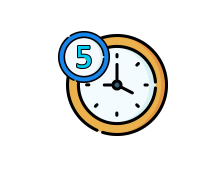








These are high intensity classes designed to get students ahead of their classes. What we cover in one session, is equivalent to 4-6 weeks of teaching at school. Every month we teach a different module, with the aim of covering the entire curriculum before their final exams.
Each lesson is dedicated to covering both theory as well as exam practice. Students receive a question pack prior to attending the class (in addition to high quality lecture notes), which is an opportunity for them to test their knowledge and see how much of the module they already know. During the live class, the teachers go through each question, and explain exactly how to score the highest marks.
These are live lessons held over Microsoft Teams. During the live class, there will be plenty of opportunity for student engagement, including live quizzes and Q&A's.




